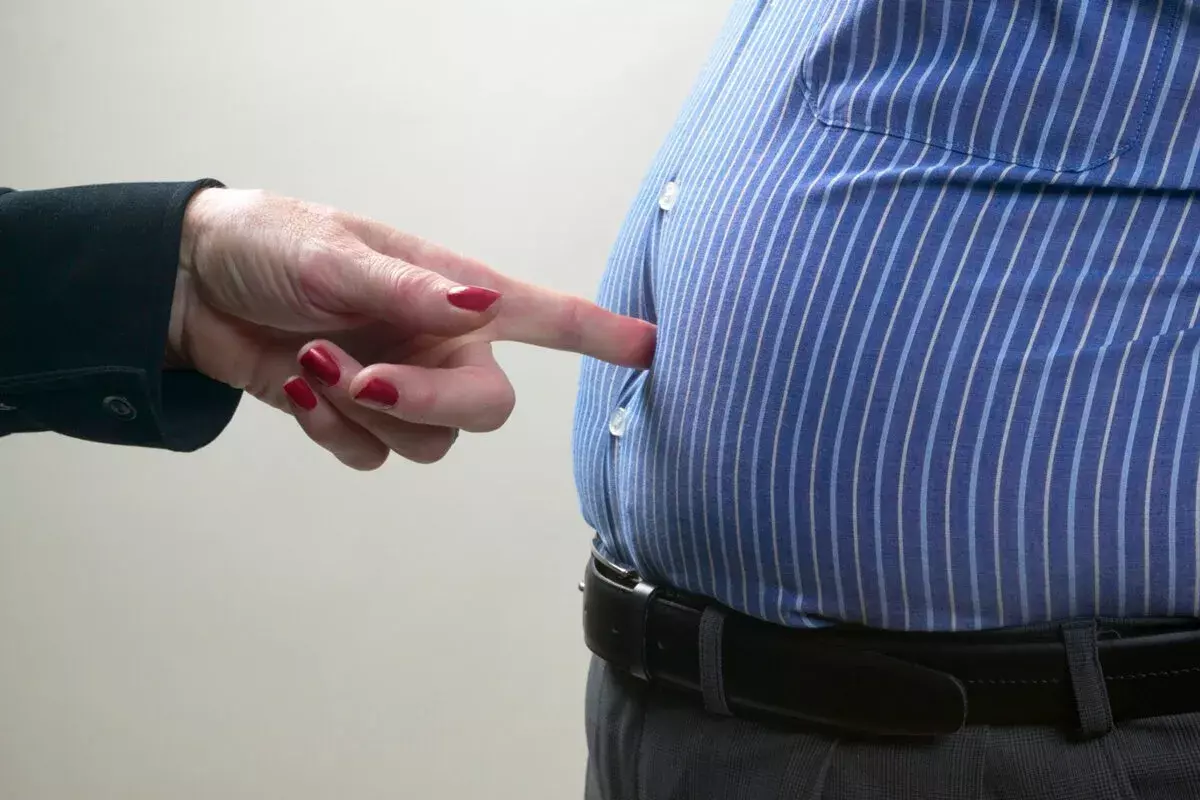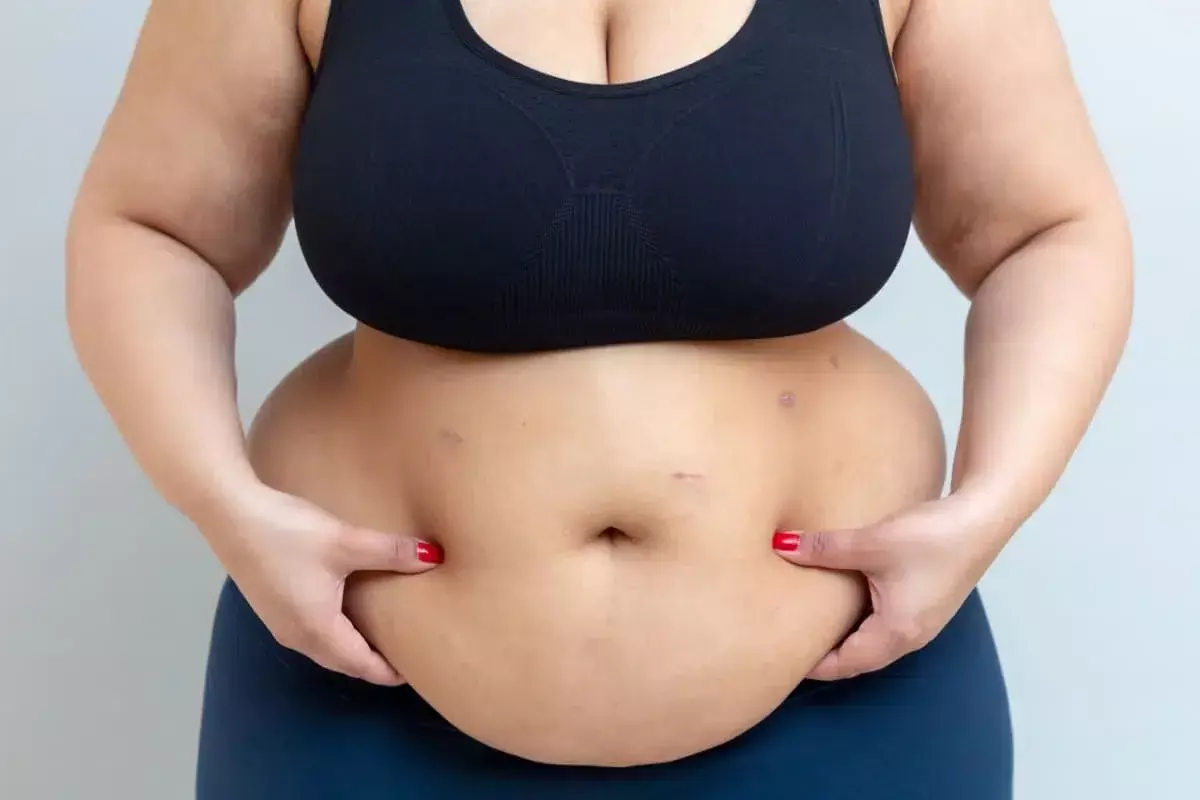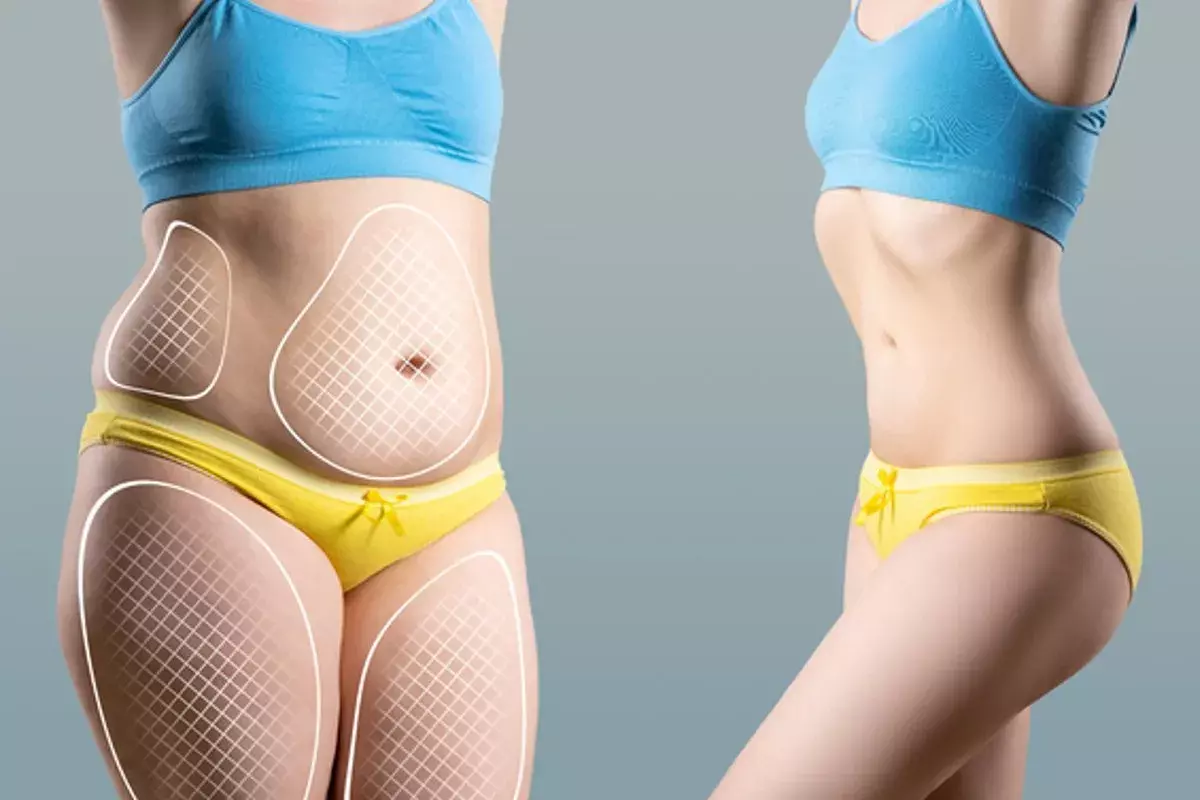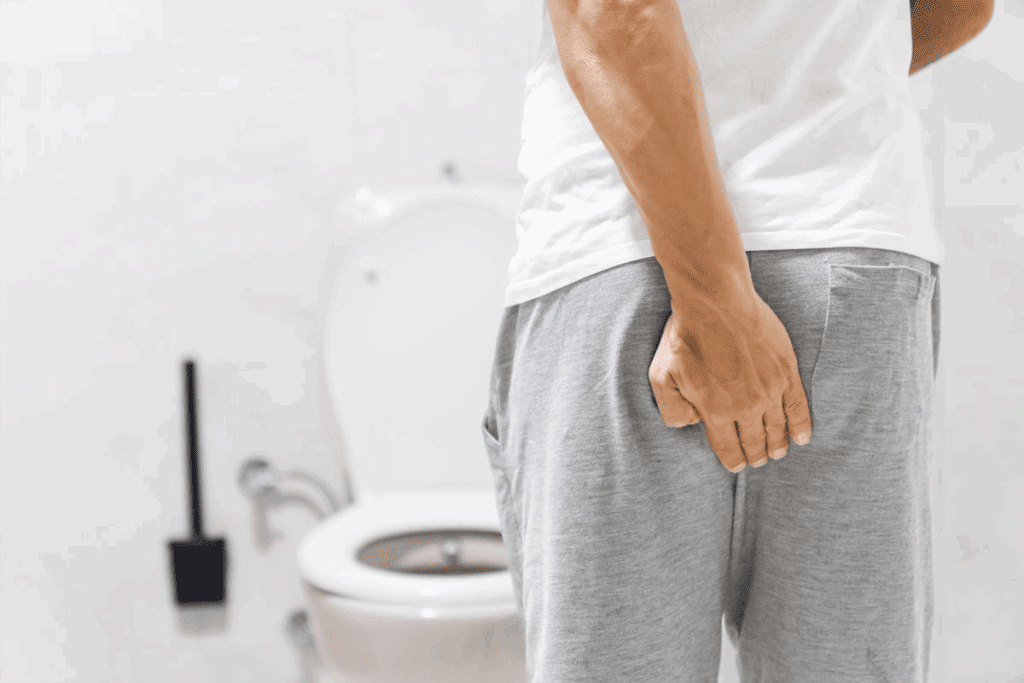
After prostate surgery, many patients notice changes in their bowel movements. This can be due to painkillers, dehydration, or the surgical procedure itself.Constipation after prostate surgery resolves in 2-3 days. Learn relief methods, stool softeners, and safe bowel movement tips.
It’s important to understand the recovery process to manage bowel function. Knowing what to expect and the factors that affect bowel movements during the recovery period is key.
Key Takeaways
- Bowel movements can be affected by painkillers and dehydration.
- The surgery itself can cause changes in bowel function.
- Understanding the recovery process helps manage bowel movements.
- Factors influencing bowel function should be considered.
- Patients should be aware of the possible bowel changes.
The Normal Digestive Process and How Surgery Affects It
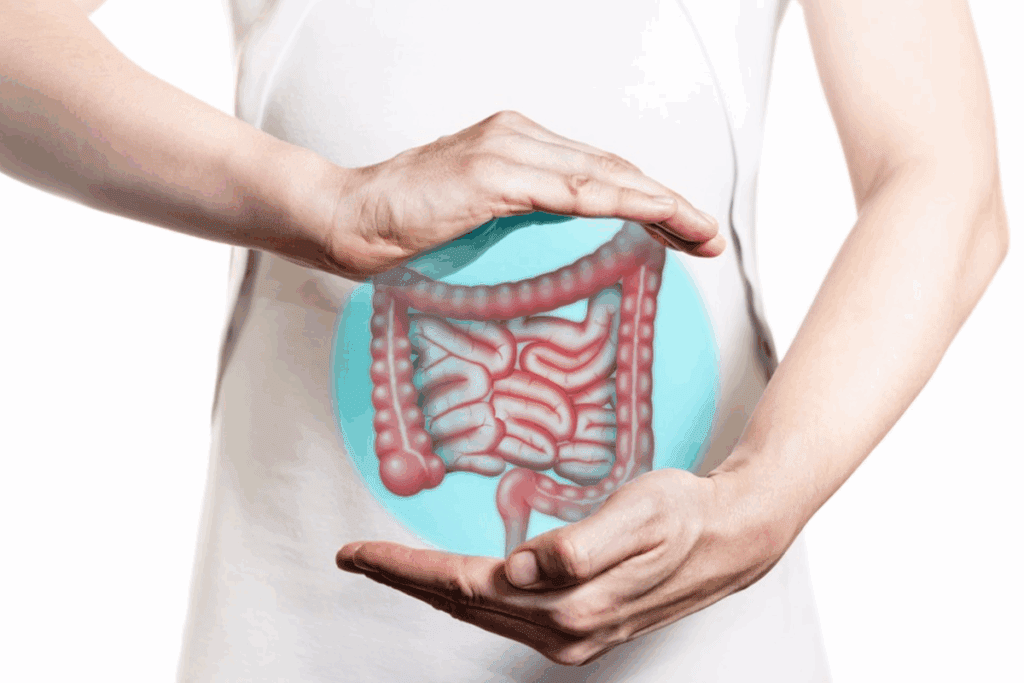
The digestive system works well together, but surgery can change this. It breaks down food into nutrients for the body. This involves many organs working together smoothly.
How the Digestive System Typically Works
It starts in the mouth, where food is chewed and mixed with saliva. This saliva has enzymes to start breaking down carbs. After swallowing, food goes into the stomach.
In the stomach, acids and enzymes break it down more. Then, it goes to the small intestine for most nutrient absorption. The leftovers go to the large intestine, where water is absorbed and waste is prepared for elimination.
Surgical Impact on Intestinal Function
Prostate surgery can affect bowel movements because of the prostate’s close location to the rectum. Surgery in this area can temporarily disrupt digestion. Painkillers and dehydration during recovery can also cause constipation.
| Aspect | Normal Digestive Process | Impact of Prostate Surgery |
| Organ Involvement | Mouth, Esophagus, Stomach, Small & Large Intestine | Primarily affects the Large Intestine due to proximity to the prostate |
| Bowel Movement Regulation | Regulated by muscular contractions and nervous system signals | Can be disrupted due to surgical trauma and pain management medications |
| Common Issues Post-Surgery | N/A | Constipation due to painkillers, dehydration, and reduced mobility |
Knowing how prostate surgery affects digestion helps patients prepare for bowel changes. They can manage constipation more effectively.
Typical Timeline for First Bowel Movement After Prostate Surgery
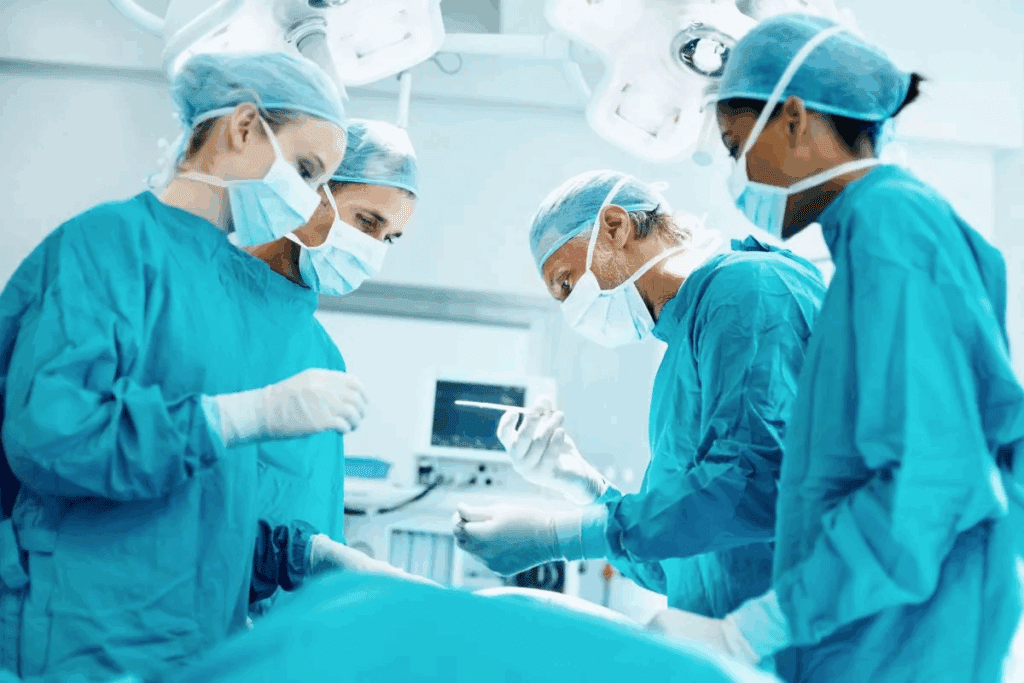
Knowing when bowel movements will return after prostate surgery is key. It helps manage what patients expect and how they recover. Each person’s experience can differ, but there’s a common path most follow.
Immediate Post-Operative Period (1-3 Days)
In the first days after surgery, bowel movements are often missing or very rare. This is because of the anesthesia and the surgery itself. Doctors usually suggest starting with a liquid diet, then moving to soft foods as you can handle them.
They might also recommend laxatives or stool softeners to help with the first bowel movement.
Early Recovery Phase (4-7 Days)
By 4 to 7 days after surgery, patients might start to have bowel movements again. These first movements can be uncomfortable or painful because of the sensitive surgical area and swelling. It’s important to drink plenty of water and take any bowel management meds as directed.
Return to Normal Function (1-2 Weeks)
Most people see their bowel movements get back to normal within one to two weeks. But, this can change based on many factors. These include your health, the surgery’s extent, and how well you care for yourself after surgery.
Keeping a high-fiber diet and drinking enough water can help you get back to normal faster.
It’s crucial to actively engage with your healthcare team regarding bowel movements and recovery. If you have any worries or if things don’t go as expected, tell your healthcare team.
Factors That Delay or Accelerate Bowel Function Recovery
Bowel function recovery after prostate surgery is complex. It’s influenced by many factors. Knowing these can help patients and doctors manage expectations and avoid problems.
Pre-existing Health Conditions
Health issues like diabetes, high blood pressure, or stomach problems can slow down bowel recovery. These conditions can weaken blood flow or affect the stomach. For example, diabetes can harm nerve function, making bowel movements slower.
Age and Overall Health Status
Age and health are key to how fast you recover. Older or sicker people might take longer to get better. Staying healthy with a good diet and exercise can help recovery.
Surgical Technique Used
The surgery method used can also impact recovery. Less invasive surgeries, like robotic-assisted ones, cause less damage and heal faster. The choice of surgery depends on the patient’s health, cancer stage, and the surgeon’s skills.
Post-operative Care Protocol
Good care after surgery is essential for bowel recovery. This includes managing pain, moving around early, and adjusting diet. A well-planned care plan can reduce problems and help the bowel function return to normal.
| Factor | Impact on Bowel Recovery |
| Pre-existing Health Conditions | Can delay recovery due to compromised health |
| Age and Overall Health | Older or less healthy patients may recover slower |
| Surgical Technique | Minimally invasive techniques can lead to quicker recovery |
| Post-operative Care | Effective care can minimize complications and support recovery |
Constipation After Prostate Surgery: Causes and Management
Many men face constipation after prostate surgery. It can be uncomfortable and worrying. This issue comes from surgery and post-care factors.
Why Constipation Occurs Post-Surgery
Constipation after prostate surgery happens for several reasons. Painkillers, dehydration, and the surgery itself play a part. Opioids slow down bowel movements, causing constipation. Dehydration makes stool harder, making it tough to pass.
Common Causes of Constipation:
- Use of painkillers, specially opioids
- Dehydration
- Surgical impact on bowel function
- Reduced physical activity during recovery
Knowing these causes helps manage constipation better.
Effective Management Strategies
Managing constipation after prostate surgery needs lifestyle changes, diet adjustments, and sometimes medication. Here are some effective strategies:
Dietary Adjustments:
- Eat more fiber from fruits, vegetables, and whole grains
- Drink enough water to soften stool
- Avoid foods that can cause constipation, like dairy and processed foods
Medications and Supplements:
- It’s crucial to actively engage with your healthcare team regarding bowel movements and recovery.
- Stool softeners to make passing stool easier
| Management Strategy | Description | Benefits |
| Dietary Changes | More fiber and fluids | Softer stool, regular bowel movements |
| Laxatives | It’s crucial to actively engage with your healthcare team regarding bowel movements and recovery. | Quick relief from constipation |
| Stool Softeners | Eases stool passage | Less strain during bowel movements |
A study found that staying hydrated and eating high-fiber foods are key.
By using these strategies, patients can reduce constipation and improve their recovery.
Different Types of Prostate Procedures and Their Bowel Effects
It’s important to know how prostate surgery affects bowel function. This knowledge helps manage what patients expect. Prostate surgery treats conditions like cancer or BPH but can change bowel habits.
Radical Prostatectomy
A radical prostatectomy removes the prostate gland and some tissue. It can be done in open surgery or minimally invasive ways. Patients might experience constipation or bowel habit changes after surgery.
Robotic-Assisted Laparoscopic Prostatectomy
Robotic-assisted laparoscopic prostatectomy uses a robotic system for precise surgery. It causes less tissue damage and faster recovery than open surgery. But, it can also affect bowel function, though less than more invasive surgeries.
TURP (Transurethral Resection of the Prostate)
TURP treats BPH by removing prostate parts that block urine flow. TURP is less invasive than radical prostatectomy. Yet, it can affect bowel function, more so if there are complications or pre-existing bowel issues.
Open vs. Minimally Invasive Approaches
The choice between open and minimally invasive approaches affects bowel effects. Minimally invasive surgeries, like robotic-assisted laparoscopic prostatectomy, cause less pain and quicker recovery. This might reduce bowel function impact. Open surgeries, with larger incisions and more tissue disruption, can have a bigger effect.
The Rezum Procedure and Constipation Concerns
The Rezum procedure is a new treatment for enlarged prostate. It uses water vapor to help. This method is less invasive than old surgeries and has fewer side effects.
How Rezum Water Vapor Therapy Works
Rezum therapy injects water vapor into the prostate. This makes the prostate smaller. It helps the urethra work better and urine flows easier. The whole thing takes about 10-15 minutes, done under local anesthesia.
The body absorbs the treated tissue over time. This reduces the prostate size. It’s a new way to treat BPH without harming the urethra or removing tissue.
Expected Bowel Function After Rezum
People often ask about bowel function after Rezum. Usually, it doesn’t change bowel habits a lot. But, there might be short-term changes because of the prostate’s location near the rectum.
| Aspect | Immediate Post-Procedure | Short-Term Recovery |
| Bowel Function | Possible temporary constipation or change in bowel habits | Return to normal bowel function within a few days to a week |
| Urinary Function | Possible urgency, frequency, or discomfort | Improvement in urinary symptoms as prostate size reduces |
Managing Constipation After Rezum Procedure
To deal with constipation after Rezum, eat more fiber and drink lots of water. Also, exercise regularly. Sometimes, a stool softener is suggested by doctors to help with bowel movements.
Tips for Managing Constipation:
- Increase fluid intake to help soften stool
- Consume a diet rich in fiber to promote regular bowel movements
- Engage in light physical activity to stimulate bowel function
By following these tips, patients can reduce constipation risks. This makes recovery from the Rezum procedure smoother.
Dietary Recommendations to Improve Bowel Function
After prostate surgery, changing your diet is key to managing bowel health. A good diet can help with constipation, a common problem after surgery. It does this by adding the right foods and staying hydrated.
High-Fiber Foods to Include
It’s important to eat more fiber to help your bowels move regularly. High-fiber foods like whole grains, legumes, fruits, and veggies are good choices. Here are some examples:
- Whole grain bread and cereals
- Legumes like beans, lentils, and peas
- Fruits such as berries, apples, and bananas
- Vegetables like broccoli, carrots, and leafy greens
These foods make your stool bulkier and help it move better. This makes it easier to go to the bathroom.
Foods to Avoid After Prostate Surgery
Some foods can make constipation or discomfort worse during recovery. It’s best to limit or avoid:
- Processed foods
- Dairy products, if you have lactose intolerance
- High-fat foods
- Spicy foods
Staying away from these foods can reduce digestive discomfort. It also helps keep your bowels healthy.
Hydration Requirements
Drinking enough water is key to avoiding constipation. Water softens your stool, making it easier to pass. Try to drink 8-10 glasses of water a day. If you’re active or live in a hot place, drink even more.
Meal Planning for Optimal Recovery
Planning your meals ahead can help you get the nutrients you need. It also helps manage your bowel health. Here are some tips:
- Eat smaller, more frequent meals
- Make sure to eat a variety of foods for balanced nutrition
- Avoid big meals before bedtime
Eating well and staying hydrated can greatly improve your bowel function and recovery after prostate surgery.
Physical Activity and Its Role in Preventing Constipation
After prostate surgery, doing the right physical activities is key to keeping your bowels healthy. It helps prevent constipation. Moving around helps your bowels work better and lowers the chance of getting constipated.
Safe Exercises During Recovery
At first, start with easy exercises that don’t strain your body too much. Short walks are great. They keep blood flowing and help your bowels move without hurting the surgery area.
Pelvic tilts and leg lifts are good too. You can do them lying down. They keep you flexible and help your bowels work right.
Gradual Return to Normal Activity
Going back to normal activities slowly is important. It helps you recover well without problems. Start with small steps and listen to your body. Rest when you need to.
Avoid heavy lifting, bending, or hard work at first. It can hurt your stomach muscles and cause issues.
Movement Techniques to Stimulate Bowel Function
Some movements can really help your bowels. For example, abdominal massage is good. Massage your belly in a circle, starting from the right and moving up, then across, and down the left side. It helps your bowels.
- Try deep breathing to relax your belly muscles.
- Yoga or Pilates can make you more flexible and help your bowels.
- Use a stool or footrest on the toilet to lift your feet. It makes it easier to go.
Adding these activities and techniques to your routine can really help. It can lower the risk of constipation after prostate surgery and make you feel better overall.
Can an Enlarged Prostate Cause Constipation?
An enlarged prostate can put pressure on nearby areas, leading to constipation. This is common in older men. It’s important to understand how it affects bowel movements to manage symptoms well.
Mechanical Pressure on the Rectum
The prostate gland is near the bladder and wraps around the urethra. When it grows, it can push against the rectum. This mechanical pressure can make it hard for the rectum to work right, causing constipation.
The rectum is part of the large intestine. It stores feces until they leave the body. When the prostate presses on it, it can block or narrow the rectal passage. This makes it tough for stool to move through.
Shared Neural Pathways
Another idea is that the prostate and rectum share neural pathways. This means irritation or inflammation in the prostate can affect bowel nerves, causing constipation.
The nerves for the prostate and rectum are connected. Problems in one can affect the other. This connection can lead to constipation in men with an enlarged prostate.
Relief of Constipation After Prostate Treatment
Fortunately, treating an enlarged prostate can help with constipation. There are many treatment options, like medicines, lifestyle changes, and surgery.
After prostate treatment, many men see better bowel habits. The prostate size goes down or the pressure on the rectum lessens. This helps bowel function return to normal, reducing constipation.
- Medicines like alpha-blockers relax prostate and bladder neck muscles. This makes urination easier and can reduce rectum pressure.
- Changing your diet and being more active can also help manage prostate symptoms and constipation.
- In some cases, surgery is needed to relieve pressure on the urethra and rectum.
By treating the enlarged prostate, men can often get relief from constipation. This improves their overall life quality.
Radiation Therapy for Prostate Cancer and Its Bowel Effects
Radiation therapy for prostate cancer can cause short-term and long-term bowel problems. This treatment is good at killing cancer cells but can harm nearby tissues and organs, like the bowel.
Acute Bowel Changes During Treatment
Patients may get diarrhea, urgency, and discomfort during radiation therapy. These symptoms come from the radiation affecting the bowel lining. The severity can vary.
Managing Acute Bowel Changes: To handle these symptoms, patients should eat a bowel-friendly diet, drink plenty of water, and take medications if needed.
Long-term Bowel Problems After Radiotherapy
Some patients may face long-term bowel issues after radiation therapy. These can include chronic diarrhea, bowel obstruction, or fecal incontinence. The risk depends on the radiation dose and how long it lasts.
| Bowel Problem | Description | Management Strategy |
| Chronic Diarrhea | Frequent and loose stools | Dietary adjustments, medication |
| Bowel Obstruction | Blockage of the intestine | Surgical intervention, bowel rest |
| Fecal Incontinence | Involuntary stool leakage | Pelvic floor exercises, biofeedback therapy |
Strategies to Minimize Radiation-Induced Bowel Issues
Healthcare providers use several ways to lessen bowel problems. They target radiation more precisely to protect nearby tissues. They also suggest dietary changes or medications to help manage symptoms.
Patient Education: Teaching patients about bowel effects and how to manage them is key. This includes advice on diet, staying hydrated, and when to get medical help.
Prostate Cancer and Diarrhea: Understanding the Connection
It’s important to know how prostate cancer treatment and diarrhea are connected. Prostate cancer treatments can affect the body’s systems, including the digestive system.
How Cancer Treatment Can Cause Diarrhea
Diarrhea is a common side effect of prostate cancer treatments. This includes radiation therapy and certain medications. Radiation therapy can damage the rectum’s lining, causing inflammation and diarrhea.
Treatment-related diarrhea has several causes. Radiation can directly harm the intestinal lining. Some medications can also change bowel habits.
Managing Treatment-Related Diarrhea
It’s key to manage diarrhea well during prostate cancer treatment. Making dietary changes is often the first step.
- Increasing fiber intake can help solidify stool.
- Avoiding spicy or fatty foods can reduce irritation.
- Staying hydrated is essential to replace lost fluids.
| Dietary Change | Effect on Diarrhea |
| Increased Fiber | Helps solidify stool |
| Avoiding Spicy Foods | Reduces irritation |
| Hydration | Replaces lost fluids |
When Diarrhea Indicates Disease Progression
Diarrhea can be a side effect of treatment, but it can also mean the disease is getting worse. It’s important to watch for changes in bowel habits and talk to your doctor.
If diarrhea doesn’t go away or is very bad, it might mean you need to see a doctor again. Look out for blood in the stool or severe belly pain too.
When to Seek Medical Help for Post-Surgery Bowel Problems
Knowing when to get medical help for bowel issues after prostate surgery is key for a smooth recovery. Bowel problems can range from constipation and diarrhea to more severe complications.
Warning Signs and Symptoms
It’s important to know the warning signs that mean you need to see a doctor. These include:
- Severe abdominal pain
- Persistent constipation or diarrhea
- Blood in the stool
- Fever
- Vomiting
If you notice any of these symptoms, you should contact your healthcare provider right away.
Emergency Situations Requiring Immediate Care
Some situations need immediate medical attention. These include:
| Symptom | Description |
| Severe abdominal pain | Pain that is intense and unrelenting |
| Bowel obstruction | Symptoms include severe abdominal pain, vomiting, and inability to pass stool or gas |
| Rectal bleeding | Significant bleeding from the rectum |
In such emergency situations, getting immediate care can prevent serious complications.
“Prompt medical attention is vital for managing post-surgery bowel complications effectively.”
Medical Expert
By knowing the warning signs and when to seek help, patients can safely navigate the recovery process.
Long-term Bowel Function After Prostate Surgery
Knowing how prostate surgery affects bowel function is key for recovery. This surgery treats prostate issues but can change bowel habits. It’s important to understand these changes.
Expected Timeline for Full Recovery
The time it takes to recover bowel function varies. Most see big improvements in a few weeks to months. But, full recovery might take longer for some.
Factors influencing recovery include:
- The type of surgical procedure performed
- The patient’s overall health and age
- Pre-existing bowel or digestive issues
Persistent Issues and Management
Some may face ongoing bowel problems like constipation or irregular bowel movements. It’s vital to manage these issues well to keep a good quality of life.
| Issue | Management Strategy |
| Constipation | Increased fluid intake, high-fiber diet, and physical activity |
| Diarrhea | Dietary adjustments, medication if necessary |
| Bowel Irregularity | Establishing a bowel routine, pelvic floor exercises |
Adapting to New Normal Bowel Patterns
Adjusting to bowel changes after prostate surgery is part of healing. Making lifestyle changes can help manage bowel health.
Key adaptations include:
- Adopting a balanced diet rich in fiber
- Staying hydrated
- Engaging in regular physical activity
Understanding the long-term bowel effects of prostate surgery and using the right management strategies can greatly improve recovery quality of life.
The Psychological Impact of Post-Surgical Bowel Dysfunction
Bowel issues after prostate surgery are more than just physical. They also affect a person’s mind. Patients often feel anxious, embarrassed, and frustrated because of changes in their bowel habits.
Anxiety and Quality of Life Concerns
Bowel problems can make people anxious. They worry about accidents or needing urgent care. This worry can really affect their life, making everyday tasks and socializing harder.
The emotional side of bowel issues is big. Patients might feel like they’ve lost control. This can make them feel embarrassed and lower their self-esteem.
Effective Coping Strategies
There are ways to deal with the emotional side of bowel issues. Here are a few:
- Seeing a counselor or therapist can help manage anxiety and emotional pain.
- Trying relaxation techniques like deep breathing or meditation can reduce stress.
- Talking openly with doctors about bowel problems can help get the right help.
When to Consider Psychological Support
Some people can handle the emotional side of bowel issues on their own. But, others might need more help. Knowing when to get professional support is key.
Signs you might need psychological help include:
- Feeling anxious or depressed all the time.
- Having trouble with bowel symptoms that really bothers you.
- Strained relationships because of stress from bowel issues.
Understanding the emotional side of bowel problems and getting the right support can help with recovery after prostate surgery.
Conclusion
Knowing how bowel function changes after prostate surgery is key for a good recovery. Surgery can alter how we digest food, affecting our bowel habits. Things like our health before surgery, age, and the surgery type also play a role.
Most people have their first bowel movement a few days to a week after surgery. It usually takes one to two weeks to get back to normal. But, some might face constipation or other bowel issues. These can be managed with diet, exercise, and proper care after surgery.
It’s important to know how different prostate surgeries can affect bowel function. This includes radical prostatectomy, robotic-assisted laparoscopic prostatectomy, and TURP. Understanding these can help reduce discomfort and aid in recovery.
Being well-informed and prepared helps patients deal with bowel changes after prostate surgery. This way, they can have a successful recovery.
FAQ
How long does it take to have a bowel movement after prostate surgery?
It usually takes a few days to a week for bowel movements to start again after prostate surgery.
Can prostate surgery cause constipation?
Yes, prostate surgery can lead to constipation. This is due to pain meds, less activity, and diet changes.
What are the causes of constipation after prostate surgery?
Constipation after surgery comes from pain meds, less activity, diet changes, and the surgery itself.
How can constipation be managed after prostate surgery?
To manage constipation, use laxatives, stool softeners, adjust your diet, and stay active.
Can an enlarged prostate cause constipation?
Yes, an enlarged prostate can put pressure on the rectum and affect bowel function.
How does radiation therapy for prostate cancer affect bowel function?
Radiation therapy can cause bowel changes during treatment and long-term issues like constipation and diarrhea.
Can prostate cancer treatment cause diarrhea?
Yes, treatments like radiation can lead to diarrhea due to bowel irritation.
When should I seek medical help for post-surgery bowel problems?
Seek medical help for severe pain, vomiting, bloody stools, or no bowel movement for days.
What is the expected timeline for full recovery of bowel function after prostate surgery?
Recovery time varies, but most men get back to normal bowel function in weeks to months.
Can prostate problems cause bowel dysfunction?
Yes, issues like an enlarged prostate and surgery can lead to bowel problems like constipation and diarrhea.
What dietary changes can help improve bowel function after prostate surgery?
Eating more fiber, staying hydrated, and avoiding certain foods can help your bowel function post-surgery.
How can physical activity help prevent constipation after prostate surgery?
Safe exercises and gradual activity can help stimulate bowel function and prevent constipation.
Can constipation be a sign of prostate cancer?
Constipation isn’t a direct sign of prostate cancer. But, it can be a symptom of an enlarged prostate or other issues related to cancer.
What are the long-term bowel effects of radiation therapy for prostate cancer?
Long-term effects of radiation therapy can include chronic diarrhea, constipation, and urgency.
Reference
- American Cancer Society. (2025). Prostate cancer: Surgery, side effects, and recovery. Retrieved from https://www.cancer.org/cancer/prostate-cancer/treating/surgery.html



